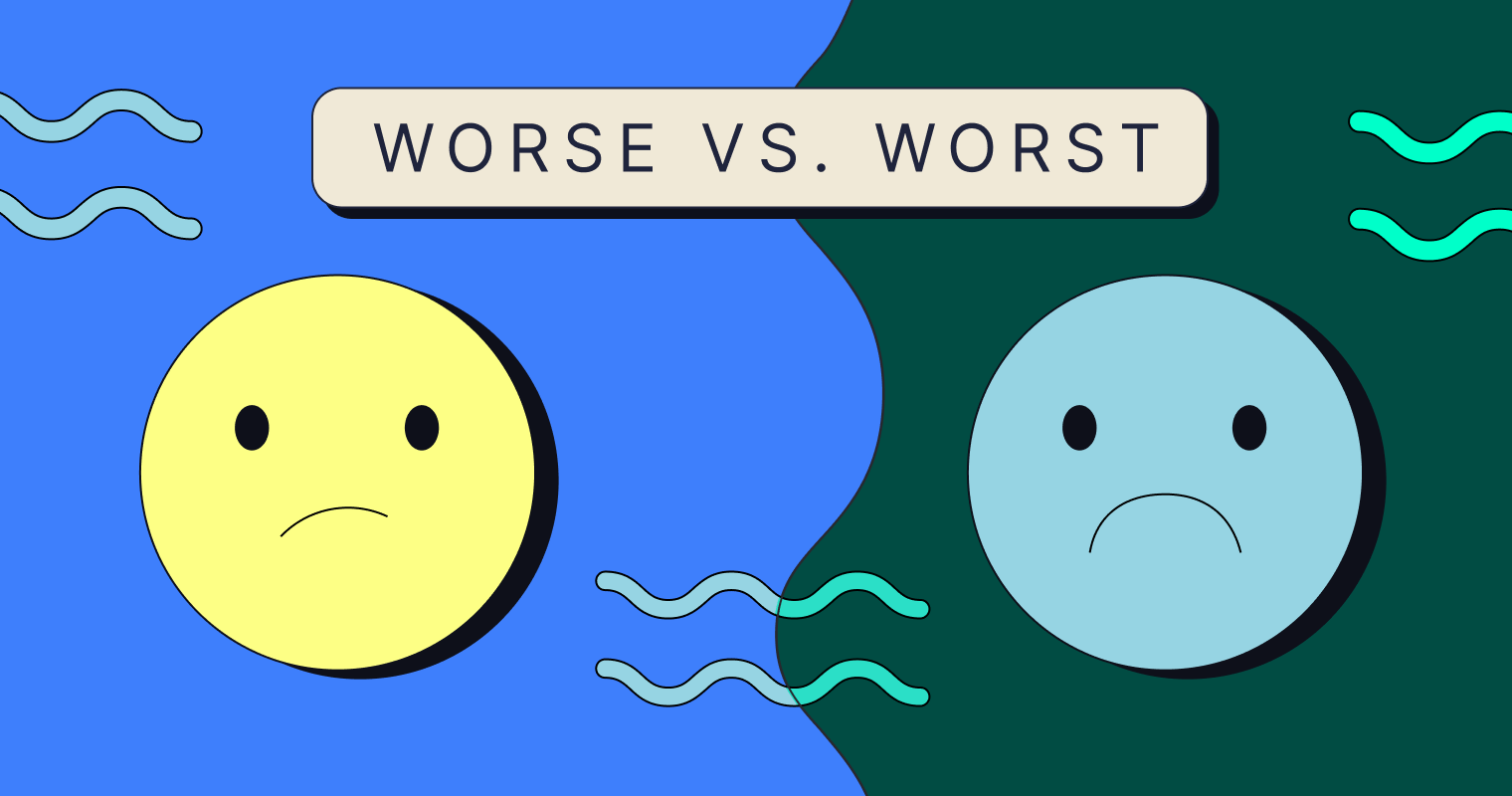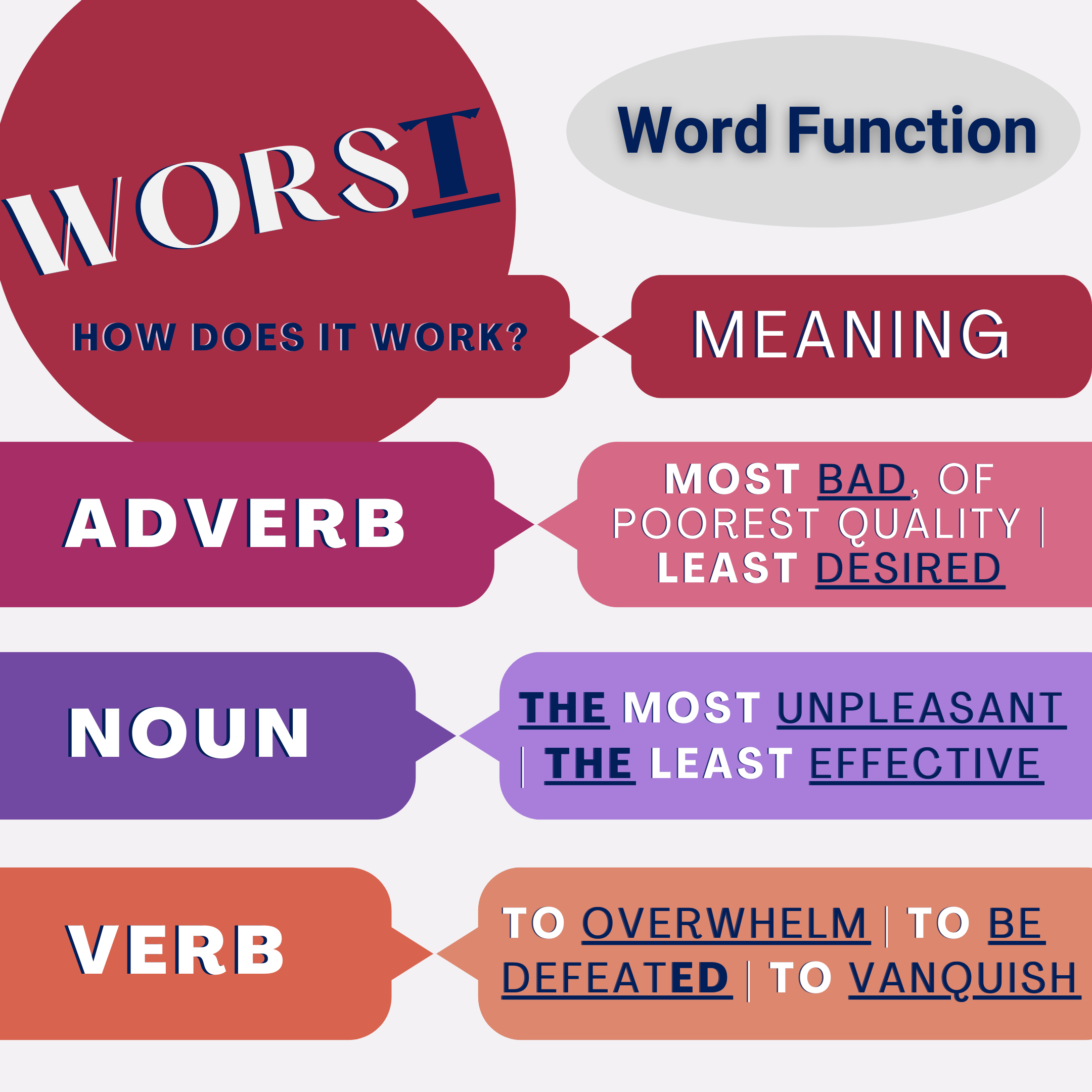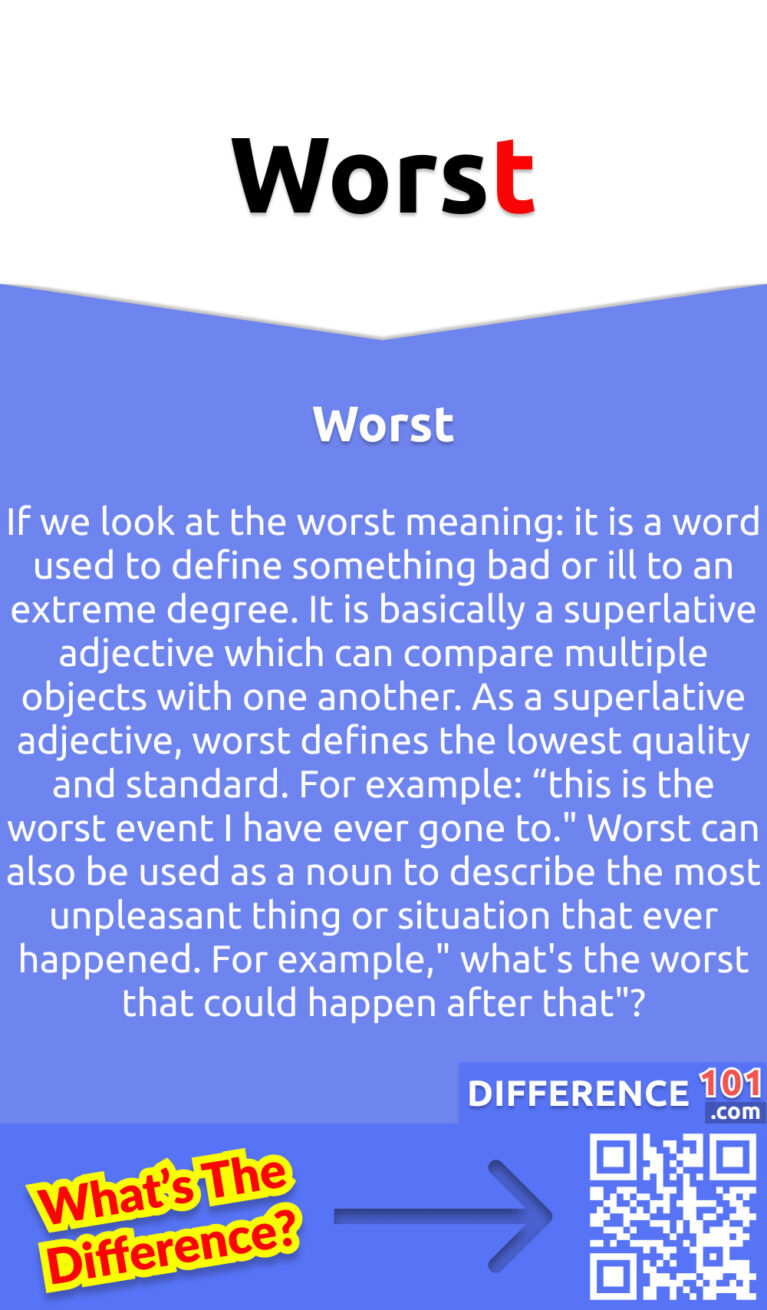Finding The **worst University Usa**: What To Watch For
Picking a college is a big decision for many young people and their families, you know? It really shapes what comes next in life. Everyone hopes for a great experience, a place that helps them grow and learn so much. But what if a school falls short of expectations, or even goes beyond just being a little disappointing? We are talking about places that might offer a less than ideal educational path, so it's a topic worth exploring.
When we talk about the "worst" university in the USA, what exactly does that mean? Well, "worst" means the lowest quality, or the most unpleasant, difficult, or severe situation, as my text explains. It points to something that is of the lowest standard among others in its group, or the most unfavorable circumstances. So, in the context of a school, it's about a place that might provide the least good or most inferior experience for its students, you see.
For anyone thinking about higher education, it is really important to know what signs might point to a less-than-ideal institution. People looking for information on "worst university usa" are often trying to avoid making a costly mistake. They want to protect their future, their money, and their time, which is completely understandable. This guide aims to help you spot those red flags and make a more informed choice, at the end of the day.
- He Grew Up Penniless And Nomadic And Then Found Out He Was The Heir To A 65 Million Estate
- Cristina Figarola Net Worth
Table of Contents
- Understanding What Makes a University Less Than Ideal
- How to Spot a Struggling Institution
- Common Questions About University Quality
- Making an Informed Choice
Understanding What Makes a University Less Than Ideal
When someone calls a university the "worst," they are usually talking about a collection of serious problems. It is not just one small thing, but a range of issues that make the overall experience poor. This can involve many different parts of the school, so it is complex. We are looking at places where the quality of education or student experience is truly below standard, you know.
Academic Program Quality
A university's main job is to teach, right? So, if the academic programs are not strong, that is a big problem. This could mean professors who are not very engaged, or classes that do not really challenge students. It might also mean outdated course materials or a lack of specialized resources for certain fields of study. Students might find themselves learning things that are not current or useful for their future careers, which is a big concern.
Sometimes, a school might offer many programs but not do any of them particularly well. This can lead to a general feeling of mediocrity across the board. Students might feel like they are not getting the depth of knowledge they need. Also, the school might not have enough faculty members for the number of students, making it hard to get personal attention or advice, you see.
Student Support Systems
Going to college is a big change for many, and good support makes a difference. Schools that struggle often have weak support systems. This means things like counseling services that are hard to access, or career guidance offices that do not help much with job searches. Students might feel alone when they face academic or personal problems, which is quite isolating.
Imagine a place where tutoring is scarce, or where advisors are too busy to meet with students regularly. These kinds of situations can really hurt a student's chances of doing well. A lack of support can lead to students feeling overwhelmed and perhaps even dropping out, which is a sad outcome. So, the services a school offers outside of the classroom are very important, in a way.
Campus Life and Student Well-Being
A college experience is more than just classes; it includes social life and personal growth. A university might be considered "worst" if its campus environment is not safe or welcoming. This could mean a lack of activities, poor living conditions in dorms, or even issues with campus security. Students need a place where they feel secure and can thrive, obviously.
If there are not many clubs or social events, students might find it hard to make friends or feel like they belong. This can lead to feelings of isolation and unhappiness. A school that does not prioritize student well-being, perhaps by having poor health services or an indifferent attitude towards student concerns, is definitely not offering a good experience. It is about creating a community, after all.
Financial Issues and Value
The cost of college is a huge factor for most families. A university might be seen as "worst" if it charges a lot but does not deliver much in return. This means a low return on investment, where the degree does not help students get good jobs or earn enough to pay back their loans. It is about getting your money's worth, and sometimes, schools just do not deliver, you know.
Some institutions might also have financial problems themselves, which can impact everything from faculty salaries to campus upkeep. This can lead to a downward spiral where the school cuts corners, and the quality of education suffers. Students might find programs suddenly canceled or resources disappearing, which is a truly difficult situation. So, understanding the financial health of a school is very important, too.
How to Spot a Struggling Institution
Identifying a university that might not be the best fit requires some careful looking. It is not always obvious from a quick glance at their website or brochures. You need to dig a little deeper and look at various indicators. This means going beyond the glossy pictures and finding the real facts, which takes a bit of effort, you see.
Looking at Accreditation and Rankings
Accreditation is a big deal for any university. It means an independent group has checked the school and says it meets certain quality standards. If a school is not accredited, or if its accreditation is at risk, that is a huge red flag. It means the education you get there might not be recognized by employers or other colleges, which is a serious problem. You can check a school's accreditation status through official bodies, like the Council for Higher Education Accreditation (CHEA).
While rankings are not the only thing to consider, they can offer a general idea of a school's standing. Consistently low rankings, especially across multiple reputable sources, might point to deeper issues. However, it is also important to look at *why* a school ranks low, as some rankings focus on research while others focus on student outcomes. So, a low ranking alone is not the full story, but it is a data point, apparently.
Examining Graduation and Retention Rates
How many students finish their degrees at a school? And how many students return after their first year? These numbers, called graduation and retention rates, tell you a lot about student satisfaction and success. A low graduation rate could mean students are not getting the support they need to finish, or that the programs are not engaging enough. It is a sign that something is not quite right, in a way.
Similarly, a low retention rate suggests that many students are leaving after their first year. This could be due to academic struggles, financial issues, or just a general unhappiness with the school environment. High rates, on the other hand, usually show that students are finding value and feeling good about their choice. So, these numbers are quite telling, you know.
Alumni Success and Career Outcomes
The main reason many people go to college is to get a better job. So, looking at what happens to graduates after they leave is very important. Does the school help its students find jobs in their field? Are graduates earning decent salaries? If a school's alumni struggle to find work or are underemployed, that might indicate a problem with the education or career services provided. This is about the real-world impact of the degree, you see.
Some schools might publish statistics on graduate employment rates or average starting salaries. While these numbers can be tricky to compare directly, a consistently poor showing here is a cause for concern. It suggests that the school is not preparing its students well for the job market, which is a primary goal for many attending college. You want to know your degree will open doors, right?
Student Reviews and Campus Climate
Online reviews from current and former students can give you a real sense of what life is like at a university. Websites where students share their experiences can offer unfiltered opinions on everything from professors to dorm food. Look for patterns in these reviews. If many students complain about the same issues, like poor teaching or a lack of resources, that is probably a genuine problem, more or less.
A campus visit, if possible, can also give you a feel for the place. Are students engaged? Does the campus feel safe and well-maintained? Talking to current students, if you get the chance, can provide insights that you will not find anywhere else. Sometimes, the overall atmosphere just feels off, and that feeling can be a clue. It is about sensing the vibe, basically.
Common Questions About University Quality
People often have specific questions when trying to figure out if a university is a good choice. Here are a few common ones, drawing from what others often ask:
What are the biggest red flags to watch for when researching a university?
Some of the biggest warnings include a lack of accreditation, very low graduation rates, and many negative student reviews mentioning similar problems. Also, if the school seems overly focused on just getting you to enroll without discussing specifics about programs or outcomes, that can be a concern. It is about seeing consistent patterns of trouble, you know.
Can a university's reputation change over time?
Yes, a university's standing can definitely change. Some schools improve over the years by investing in new programs or facilities, or by getting new leadership. Others might decline due to financial issues or poor management. Keeping up with recent news and trends related to the school is helpful. Things are always moving, so it is worth checking the latest information, you see.
Is a lower tuition fee always a sign of lower quality?
Not always, no. Some public universities, for example, have lower tuition because they receive state funding, but they offer very strong academic programs. However, a tuition fee that seems too good to be true, especially for a private institution, might warrant a closer look. It is about finding the right balance between cost and value, so you really have to weigh things carefully.
Making an Informed Choice
Choosing a university is a significant step, and it requires careful consideration. By looking closely at academic quality, student support, campus environment, and financial aspects, you can make a choice that serves your future well. Remember, the "worst" university is the one that provides the least good experience, or the most inferior outcome, as my text explains. It is about avoiding that kind of situation, clearly.
Take your time, do your research, and trust your instincts. Speak with current students, alumni, and admissions staff. Ask tough questions. The goal is to find a place where you can truly grow and succeed. Learning about university selection on our site can help you more. You can also link to this page for more research tips.

301 Moved Permanently

worse vs worst what is the difference?

Worse vs. Worst: 7 Key Differences, Pros & Cons, Examples | Difference 101